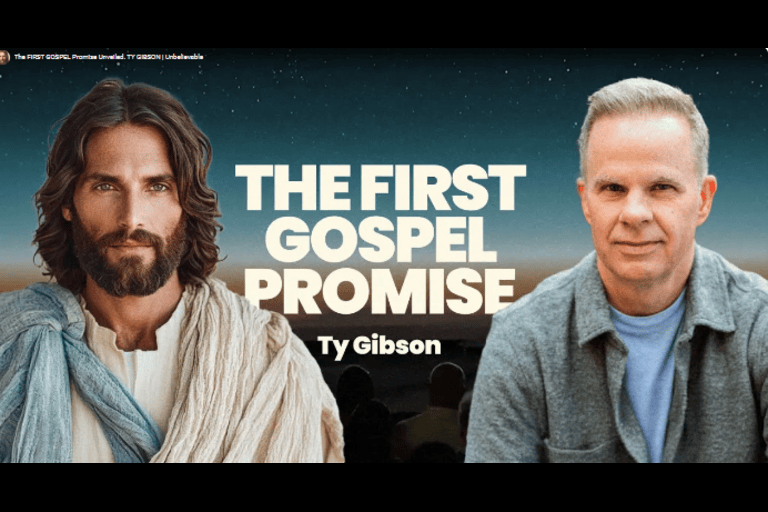Biblical Perspectives on Liberty of Conscience and Religious Freedom
Question: What does the Bible, and the Christian Worldview say regarding Liberty of Conscience and Religious Freedom?
The Bible does not explicitly use modern terms like “liberty of conscience” or “religious freedom,” but it lays out foundational principles that align with these concepts.
Liberty of conscience refers to the inner freedom to hold beliefs, make moral judgments, and act according to one’s convictions without coercion, particularly in faith matters, as God alone governs the conscience.
Religious freedom extends this to the right to choose, practice, and express religion or spirituality, without force, rooted in human volition and God’s respect for choice. These ideas are derived from Scripture’s emphasis on free will, non-coercion in belief, and the distinction between divine and human authority.
God created humans with free will, and no one—neither civil authorities nor religious institutions—should coerce or control an individual’s conscience in matters of faith. Key points include:
Personal choice is sacred, and every individual must have the freedom to follow their conscience in worship and belief, as God does not force allegiance. “The Bible teaches that man has the right to worship God according to the dictates of his own conscience, because this is a matter between himself and his Maker.”
There must also be opposition to coercion, opposed to any form of compulsion in religious matters, arguing that true faith must be voluntary. “God never forces the will or the conscience; but Satan’s constant resort—to gain control of those whom he cannot otherwise seduce—is compulsion.”
There is an inherent moral responsibility, emphasizing that liberty of conscience comes with accountability to God. Individuals must study Scripture and seek truth for themselves. “Every human being, created in the image of God, is endowed with a power akin to that of the Creator—individuality, power to think and to do.”
Religious liberty is a principle that protects individuals and societies from tyranny and ensures the free exercise of faith. Religious liberty is inseparable from civil liberty and warned against the dangers of religious persecution and the union of church and state.
There should be separation of the church and the state, being guarded against any merging of religious and civil authority, which history has shown leads only to oppression of the minority. “The union of the church with the state, be the degree ever so slight, while it may appear to bring the world nearer to the church, in reality brings the church nearer to the world.”
Church-state confederacies and unions historically have led to persecution and the suppression of dissent. Therefore, religious liberty is a universal right, not limited to any one group. “The religion of Jesus Christ is not to be enforced; it is to be accepted by love, not compelled by force.”
There are grave concerns of the ongoing current threats to religious liberty with the emerging social and political unrest and division, particularly in the context of enforcing religious observance and or religious mandates made in the interest of the common good. There is grave concern, that laws are and will be enacted to restrict religious freedom and liberty of conscience, particularly targeting those who observe the biblical Sabbath (Saturday). All must be vigilant in defending religious liberty against such encroachments. That means that all, Christians and non-Christians, actively promote religious liberty and to defend freedom of conscience. “We are not to sit in calm expectancy of oppression, but to rise up and use every means in our power to avert the evil.”
“It is the prerogative of God alone to control the conscience. Human beings are not to be coerced in matters of faith.”
“The banner of truth and religious liberty held aloft by the founders of this nation must not be trailed in the dust.”
“Liberty of conscience, which has cost so great a sacrifice, will no longer be respected when the so-called Christian world unites with the state to enforce its decrees.”
The following key principles, supported by verses and examples, drawing from biblical texts and interpretations are:
- Liberty of Conscience: God as Sole Lord and the Freedom to Act in Faith
The conscience is depicted as an internal moral compass that assesses actions based on God’s standards which are shown in the Bible. Scripture teaches that it should be shaped by God’s Word, not human doctrines, and that individuals have liberty in “disputable matters” where the Bible is silent or allows variation. This liberty must honor God and consider others— it protects against binding consciences unlawfully.
Key Principles:
- God alone rules the conscience, freeing it from commands contrary to His Word. Forcing beliefs betrays true liberty. In matters like diet or observances, believers should act from conviction, not doubt, as “whatever does not proceed from faith is sin” (Romans 14:23).
- Liberty includes self-restraint for love’s sake, to avoid wounding another’s conscience or free will. The Fall corrupted conscience or free will (Genesis 3:7–8), but restoration as sons and daughters of God was gained at the cross, in the life, death, resurrection and ascension of Jesus Christ. Now all have free will and can choose to no longer to be slaves to sin, by claiming the gift and blood of Jesus Christ and living Holy Spirit filled lives.
Examples from Scripture:
Adam and Eve’s pre-Fall conscience was innocent and free from guilt (Genesis 2:25), but post-disobedience or Fall, it condemned them, demonstrating that man was created in the image of God with the freedom of choice. God does not coerce.
Paul circumcised Timothy for practical reasons (Acts 16:3) but opposed forcing circumcision on Gentiles (Galatians 2:1–3), distinguishing between binding coercion and wise actions. In food offered to idols, Paul upholds freedom but urges abstaining to protect others in the faith (Romans 14:1–15:13; Acts 15:28).
- Religious Freedom: The Freedom to Choose Faith Without Coercion
Scripture portrays God as granting humans the ability to choose belief, emphasizing that true faith is voluntary and heart-based, not enforced. Government or others should not compel worship, as salvation comes through the Holy Spirit, not earthly power. This supports a “derived doctrine” of religious liberty, where faith cannot be mandated.
Key Principles:
Humans, made in God’s image, have volition to choose (Genesis 1:26), and God respects this even when choices are wrong. Faith is not forced; everyone is given a measure of faith; God desires willing relationship, not external compliance. Obey God over human authority in faith matters but use civic rights to protect gospel proclamation and the individual’s freedom of choice. Religious liberty aids authentic evangelism, as coercion produces hypocrisy.
Examples from Scripture:
The rich young ruler rejects Jesus and walks away freely (Matthew 19:16–23), showing God allows refusal.
Jesus laments Jerusalem’s unwillingness (Matthew 23:37), respecting their choice.
Paul asserts his Roman citizenship to avoid unlawful punishment and defend his right to worship and preach (Acts 16:35–39; Acts 22:22–28), using laws for religious freedom.
In Philippi and Jerusalem, Paul appeals to beliefs like the resurrection to frame persecution as religious, dividing opponents (Acts 23:6–9).
Daniel and friends refuse idol worship (Daniel 3; 6), prioritizing obedience to God over state mandates.
Key Bible Verses on These Themes:
Liberty of Conscience
Romans 14:22–23 (ESV) “Blessed is the one who has no reason to pass judgment on himself for what he approves… Whatever does not proceed from faith is sin.” This emphasizes acting from personal conviction without doubt.
1 Corinthians 10:29 (ESV) “I do not mean your conscience, but his. For why should my liberty be determined by someone else’s conscience?” Protects personal freedom from others’ judgments.
1Corinthians 8:9, 12–13 (ESV)”Take care that this right of yours does not… become a stumbling block… If food makes my brother stumble, I will never eat meat.” Balances liberty with love, avoiding harm to others’ consciences.
Religious Freedom
Joshua 24:15 (ESV) “Choose this day whom you will serve… But as for me and my house, we will serve the Lord.” Illustrates voluntary choice in worship.
Galatians 5:1 (ESV)”For freedom Christ has set us free; stand firm therefore, and do not submit again to a yoke of slavery.” Affirms spiritual freedom from bondage, extending to religious practice.
Acts 5:29 (ESV)”We must obey God rather than men.” Justifies civil disobedience when human laws violate faith convictions.
Matthew 13:24–30 (Parable of the Wheat and Tares) Let both grow together until harvest; warns against forcing separation of believers and unbelievers, implying tolerance.
John 18:36 (ESV)”My kingdom is not of this world.” Distinguishes spiritual authority from earthly coercion.
Religious Liberty and Liberty of Conscience
2 Corinthians 3:17 (ESV) “Now the Lord is the Spirit, and where the Spirit of the Lord is, there is freedom.” Links divine presence to true liberty, including conscience and religion.
Romans 14:1–23 (ESV) Accept the weak in faith without quarreling; each must be convinced in their own mind. Promotes liberty in non-essentials.
Conclusion:
Biblical teachings substantiate liberty of conscience and religious freedom as essential for genuine faith, which thrives on choice and conviction rather than compulsion. While the Old Testament shows instances of divine judgment on idolatry, the New Testament shifts toward persuasion and love, aligning with God’s respect for human will and the freedom of choice. These principles have influenced modern rights, emphasizing that true belief comes from the Holy Spirit (John 6:63), not force. These Biblical principles are foundational to the United States Constitution and the Bill of Rights.
Violations, like binding consciences beyond Scripture and abrogating free will, are seen as sinful, urging believers to defend these freedoms for gospel advancement. As Paul modeled, use available rights to protect practice, but ultimate freedom is in Jesus Christ, The Son of God.






